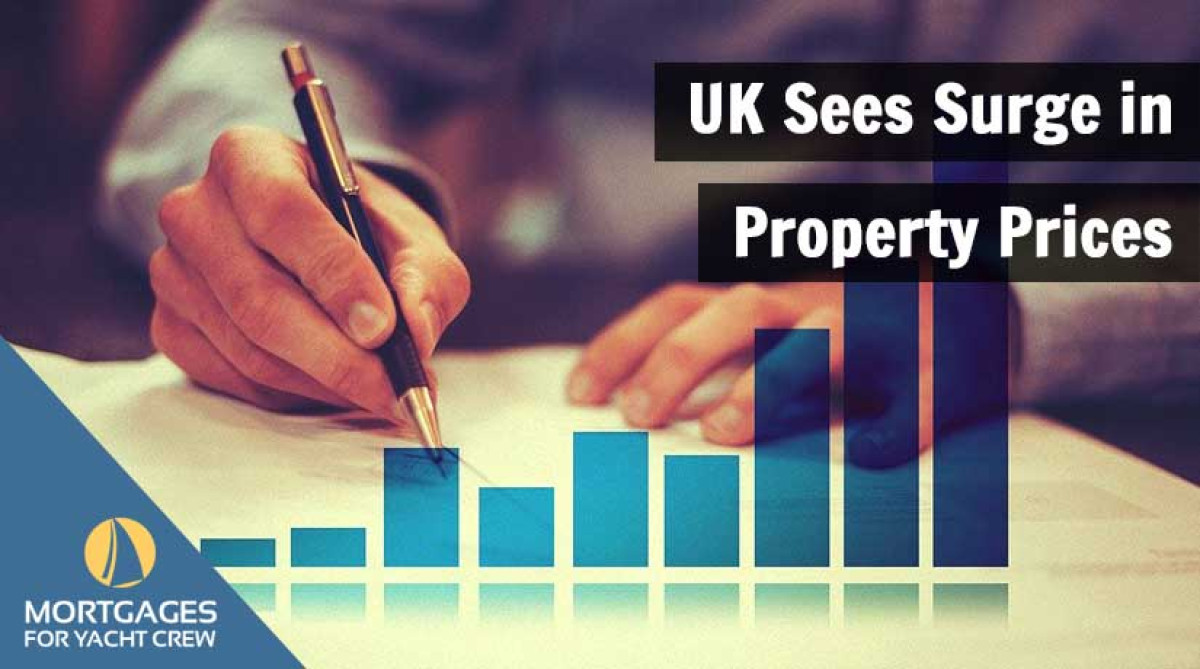UK Sees Surge in Property Prices
- Authors
-
-

A Nationwide Building Society report at the beginning of September suggests that house prices are rising at their fastest pace in 16 years, as the market bounces back from its incredible nosedive in reaction to the sudden unknown that swept across the country as we went into lockdown.
Nearly six months on, as we emerge from the strict measures and start to embrace our "new normal", property prices have surged to a record high, most likely driven by government incentives such as the stamp duty holiday and low interest rates.
Working from home, rejecting long commutes and a desire to have the much talked about, but rarely realised, work/life balance has seen a rush for outer suburban, coastal and country properties sending prices soaring as the rush in demand far outweighs the supply.
In this article, we examine how the increase in property prices is being driven by a change in demand, and what could be over the horizon.
Read on to find out more or click a jump link below to skip to your desired chapter.
Chapters
House Price Reversal
“House prices have now reversed the losses recorded in May and June and are at a new all-time high” said Nationwide’s chief economist, Robert Gardner. Average house prices have risen to be 3.7% higher than 2019 which translates to 2% in nominal terms.
Naturally, the rises are not being seen across the board and, in fact, some areas and stock are seeing the opposite trend with demand for one bedroom flats and inner city properties falling dramatically making it difficult to report a genuine average UK house price.
Large homes are selling fastest, with the average asking price of a home for sale on Zoopla up 8% compared with a year ago.
Richard Donnell, Director of Research at Zoopla warns:
“The rebound in housing demand is creating more 'transaction bias' than normal as we see a big shift in the price and type of homes that are selling as a result of the lockdown.”
Real or Artificial Surge?
It could also be argued that the rise in prices is equal to the reduction in stamp duty as buyers choose to pay more for a property which can then be spread over the mortgage term, rather than paying a large sum upfront in taxes, thus creating an artificial surge after months of aggressively repressed activity.
The market is simply reigniting after lockdown, combined with more properties becoming available as people desert the city, but fewer in demand properties actually being offered, the stamp duty holiday and cut in interest rates.
Source: tradingeconomics.com
Will it Last?
The continuing uncertainty in the property market has been reflected by the major lenders who have reacted by demanding higher deposits from buyers, and offering comparatively high interest rates to those unable to find them.
First time buyers, the young, and low earners are, of course, the worst hit as cash buyers and those with equity meet the inflated asking prices.
Experts expect a natural decline as the year nears its end and into the early months of 2021.
Hansen Lu, property economist at Capital Economics says:
"The recovery in the house market has so far been V-shaped”, but he warned, “...we expect the recent frenzy in housing demand to cool over the next few months."
For first time buyers, the competition in the market is driving prices up, and for those looking to make the most of the stamp duty relief, they may find they need a larger deposit which offsets any saving in real terms.
Other Considerations
Another factor to consider is the to be expected increased length of time that sales administration is taking.
"Patience will be required," says Miles Shipside, Rightmove’s director and housing market analyst.
"To minimise the risk of missing the March 31 stamp duty deadline it’s best to plan well ahead. This busy pace of the market looks set to continue in the short term, and although the market has proven resilient since reopening, we still need to be mindful of the wider economic concerns as the year progresses."
Buying a house has always been something of a gamble, but if you’re looking for a home, it’s generally a good investment.
As John Howard says:
"The one thing we do know is that over the last 50 years, property prices have gone up more than most other investments. The saying 'make hay while the sun shines' is, I think, very relevant in this current market – next year and the year after could look very different."
IMPORTANT: Mortgages for Yacht Crew does not provide advice in relation to savings and investments. This article is intended for discussion only and does not propose financial advice in any way, and therefore should not be construed as such. Your property may be repossessed if you do not keep up with mortgage repayments.